Covid: Out-of-work young in Wales 'face being scarred'
- Published
- comments
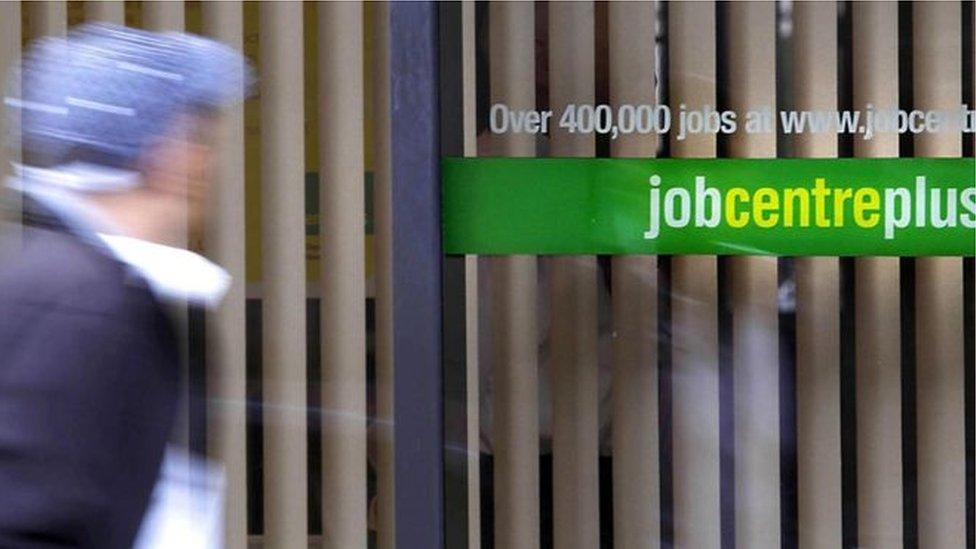
The report warns the problem young people face is Wales' "biggest economic challenge in living memory"
Young people should be guaranteed work or training to avoid becoming "scarred" by Covid-19, an inquiry has found.
Welsh ministers should take action to stop a "monumental spike in youth unemployment", a report by the Senedd's cross-party economy committee has said.
Overcoming it is a major part of the recovering from the "biggest economic challenge in living memory".
The Welsh Government said its priority was for Wales to be "more prosperous, but also fairer and greener".
In December, Wales had the highest rise in unemployment in the UK - despite that, the Welsh rate of unemployment stood at 4.4% last month, lower than the UK rate of 5.1%.
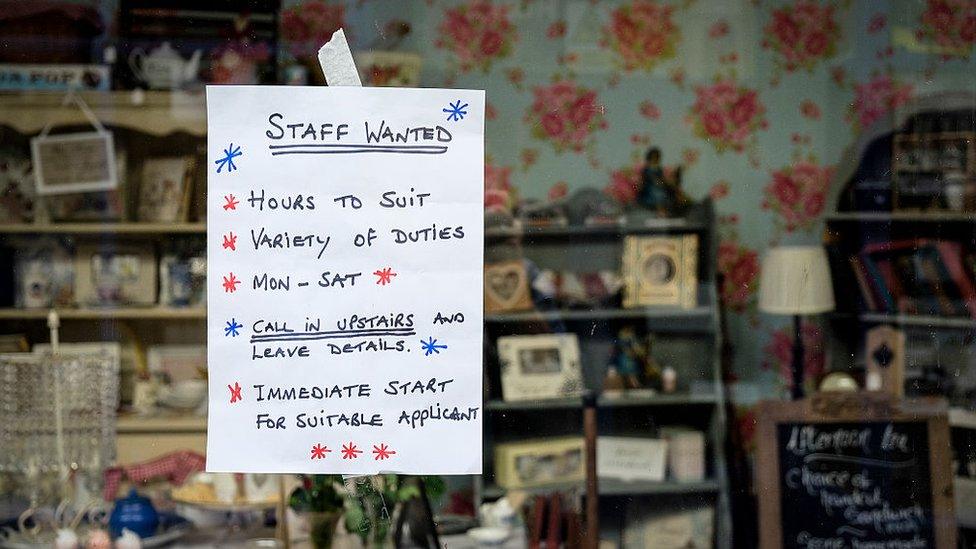
The report calls for a skills-led recovery and a campaign to make sure young people are paid a living wage
Outlining a range of strategies to tackle the problem, the report - Long-Term Recovery from Covid-19 - calls for a skills-led recovery, with special support for the hardest-hit sectors and a campaign to pay the real living wage, external.
One chapter deals specifically with young people, stating they were more likely to be furloughed during the first wave of coronavirus than other age groups.
It also details how the rate of 18 to 24-year-olds in Wales claiming unemployment benefits rose "considerably" in 2020.


Depriving young people of work experience during shutdowns could be "locked into their earning potential" for the rest of their lives, the report said.
"Without the right support for skills, training and work experience, there is a very real risk of a scarred 'Covid generation'."
Ministers should "urgently" look at a setting up a youth opportunity guarantee for 16 to 24-year-olds, it urged.
A similar scheme in Scotland already offers one or two years in work or training.
Jonathon Dawes, 18, from Rhyl, said he thought it was the right step to get young people on the employment ladder.
"If it wasn't for the pandemic I would be tennis coaching, but at the moment I am at home.
"In my scenario my work has been delayed, but so many more young people have had their career pathways put to one side and this would be a fantastic way to get them back on track."
Sixteen-year-old Lloyd Mann from Abergavenny said he wanted to see how the scheme panned out.
"It's the perfect thing to start filling in the gaps. A government scheme that offers security will put a lot of young people at ease.
"The pandemic has definitely made me reconsider going to university. If it wasn't for the pandemic I'd be aiming to get some kind of part-time job and my education would be less effective. Although uni has been my main goal for sometime, the scheme has made me think about other options."
Plaid Cymru Member of the Senedd Helen Mary Jones, who sits on the committee, said: "In the past, we've seen what amounts to a lost generation - if you look back to the 1980s, we had young people who were out of work for two years. Those people are coming up to retirement age now and their lives are still affected by that economic shock all those years ago.
"So we want to make sure that that doesn't happen to this generation of young people, and we want the government to invest in ensuring that they get over this economic hump."
She told BBC Radio Wales Breakfast with Claire Summers: "It's very much about working with employers in the private sector, enabling them to bring young people on board, which perhaps they couldn't afford to do on their own and supporting them to do that."
'The employability narrative'
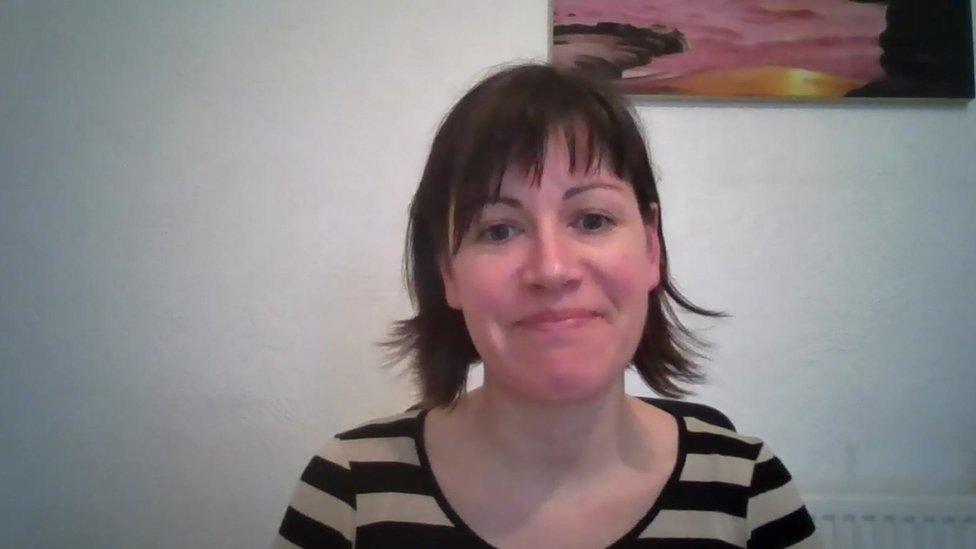
Dr Sioned Pearce said Wales could look to international structures for a solution
Dr Sioned Pearce from the Wales Institute of Social and Economic Research and Data (WISERD) at Cardiff University said young people have been hard hit and the Welsh government needed to get out of the "employability narrative" that is about getting a young person into work without thought about factors such as the nature of the work and the pay.
She said: "In the UK as a whole, young people were two-and-a-half times more likely to be working in a sector that was shut down before the lockdown and in Wales that was three times more likely.
"So that's a really concerning picture, particularly when you take into account the long-term scarring effects of youth unemployment, even for short periods, not just on future earnings but on mental health, physical health relationships, and so on."
She said the situation has "exacerbated issues of precarity" for young people - with under-25s more likely to work with zero hour contracts, having to work part-time, or on low incomes.
"There is also the issue of deprivation in Wales which is longstanding. Wales receives a higher amount of European structural funding because of its high levels of deprivation - young people living in rural or valleys levels of Wales may find it particularly difficult, especially then with the coming withdrawal of EU funding post-Brexit."
She said Wales could look to examples in places such as Scotland and Sweden and "challenge that work-first imperative and keeping the principle of no-one left behind in mind".
A Welsh Government spokeswoman said: "We don't want anyone to be left behind.
"Our Covid commitment will create opportunities to retrain and upskill in new and high-growth areas and ensure support is on hand for anyone needing it, including helping young people to enter the labour market for the first time.
"We have set out a clear and ethical vision for the future that supports everyone in Wales."

Have you found it hard to find work in the pandemic? Are you worried about finding a job after you finish education?
Use this form to tell us about your experiences:
If you are reading this page on the BBC News app, you will need to visit the mobile version of the BBC website to submit your question on this topic.
- Published23 February 2021
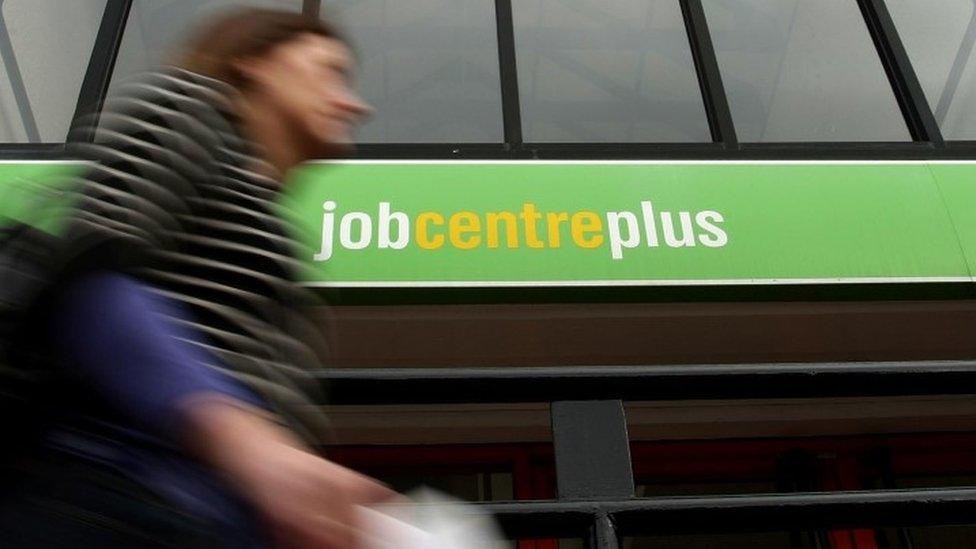
- Published23 February 2021
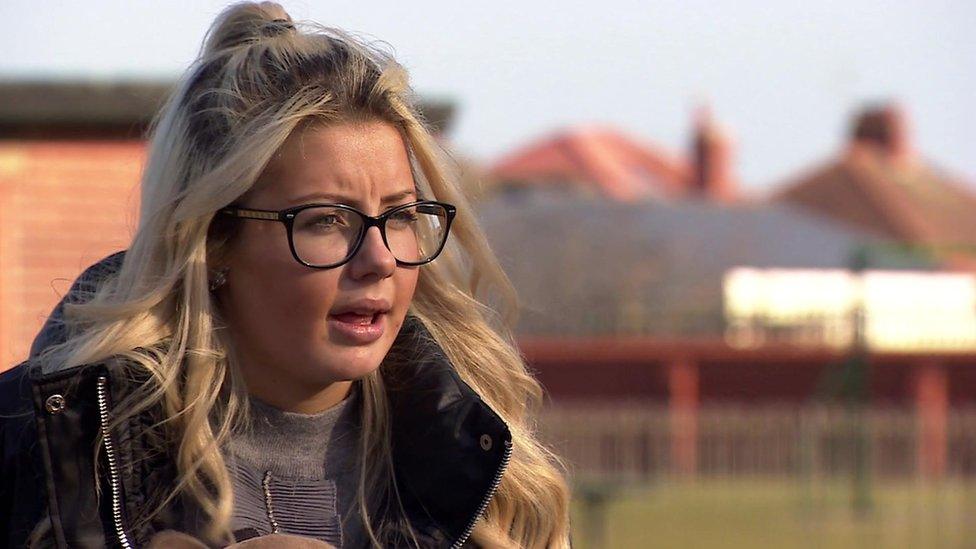
- Published26 January 2021
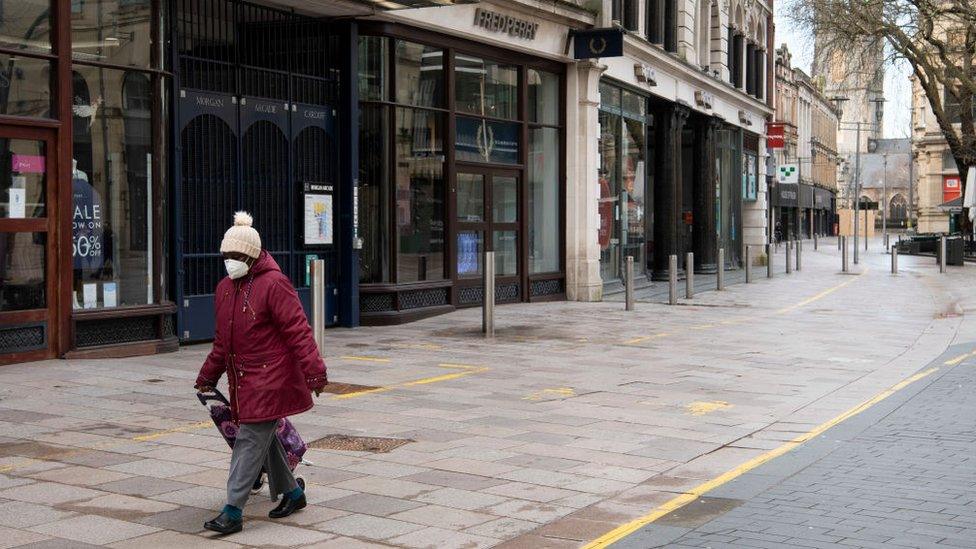
- Published28 January 2021

- Published15 December 2020

- Published30 November 2020

- Published11 August 2020

- Published16 June 2020
